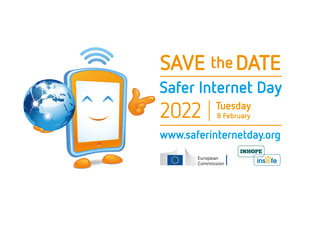Most children today have already been online by the time they go to their first school; numerous online games and apps encourage them to play while learning. But how can we, as parents, teach our children to be vigilant on the internet? Where do parents think action is required, and what issues are still unresolved?

Avast supports Safer Internet Day
Make devices family-friendly
Given the wide range of online offerings, particularly in the field of gaming, it's often difficult for parents to judge which apps are suitable for children. The Google Play Store has a Family category where they only list verified family-friendly apps which have no age restriction and only allow ads that are child-friendly. The Apple App Store also has a Kids category that only allows apps that comply with established data protection requirements for children. Context-related ads must also be suitable for children. Apps in the category require parental consent if the children click links to external sites or want to make in-app purchases.
The internet is a great learning tool and entertainment platform, but it's important to make sure that children are also aware of the risks. Parents don’t need to spell out all the dreadful things that can happen online. But their children should understand that the internet can be dangerous if they’re not careful, even when they’re sitting safely at home in front of the PC, a mobile phone, or tablet. The same applies to social media platforms.
Educate your children about social media do's and don'ts
Parents should talk to their children about the social media they use or want to use. Then they should go through the privacy settings on each platform with their children and explain what information they can share and with whom. Cyberbullying is another important issue that should be openly discussed with children. On popular messaging apps such as WhatsApp, you can set up the app so that only the child’s contacts are able to see the profile image and status when the child is online. Parents should also ensure that their children have enabled end-to-end encryption to prevent cybercriminals or third parties from accessing messages and sensitive information. It’s equally important to talk with the parents of other children using services like WhatsApp because messages are only protected when all participants encrypt them.
In addition to explaining potential risks, it's also important that parents are directly involved with their children's online activities. Go online together and let your child show you what they enjoy doing most. Then ask what happens online without being overly controlling. Enjoy sharing and laughing together at some fun videos, pictures, and other content. In this way, children will feel that their parents understand their hobbies and will turn to them if there are problems.
Children can go online on their own without any issues and use apps and devices without assistance and monitoring. However, parents should make sure that the content is suitable for them. Useful tools include special parental controls, or ad blockers that block advertising while children are online. Protecting children ultimately begins with educating parents about internet security and associated risks. The more that parents engage with digital media and the extensive range of online offerings, the sooner their children will be competent internet users.
Updated on April 12, 2022 with new updates and information